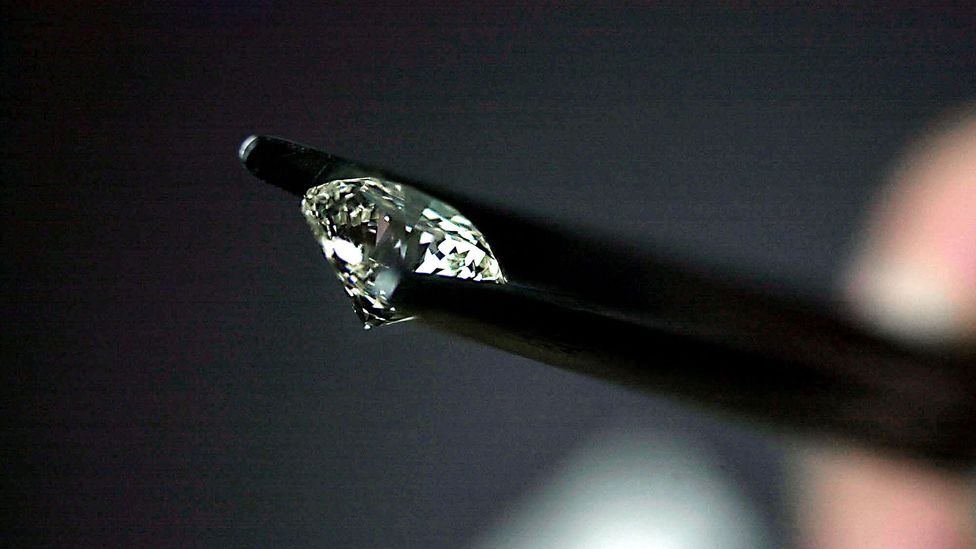In recent years, lab-grown diamonds have seen a rapid rise in popularity due to their ethical and economic advantages over mined diamonds. Lab-grown diamond production has grown exponentially since its introduction, with producers taking advantage of cutting-edge technology to create beautiful stones at an affordable price.
This article will explore the reasons behind this trend and discuss how lab-grown diamonds are reshaping the jewelry industry by offering both environmental and financial benefits. We will also talk about the ethical implications of choosing lab-grown over natural diamonds when purchasing fine jewelry.
Finally, will look at what the future may hold for this rapidly growing market as people become more aware of their ethical choices when it comes to buying gemstones.
Benefits of Lab-Grown Diamonds

Lab-grown diamonds offer a range of benefits that make them an attractive choice for ethically-minded consumers. These stones are created in a laboratory environment and have the same physical, optical, and chemical properties as mined diamonds, making them visually indistinguishable from their natural counterparts.
Lab-grown diamonds also tend to be more affordable than mined stones, making them ideal for those who want the look of luxury without breaking the bank. Additionally, lab-grown diamonds come with minimal environmental impact since they don’t require mining or other traditional diamond extraction methods.
They can also be produced much faster than mined stones—sometimes in as little as three weeks—allowing jewelry makers to quickly create custom pieces with these stunning gems. Finally, many ethical shoppers prefer lab-grown diamonds due to their traceability: each stone is tracked from creation to sale so customers know exactly where it came from and how it was produced.
The Ethical Concerns Regarding Lab-Grown Diamonds

The ethical implications of lab-grown diamonds are vast. As the technology to create man-made diamonds advances, questions arise about their impact on the environment and society as a whole.
In addition to environmental concerns associated with both mining and manufacturing processes for diamond production, there is an increasing focus on how these diamonds are marketed in comparison to mined ones. Many critics argue that lab-grown stones should not be sold as diamonds due to their potentially lower value than authentic mined stones.
Furthermore, questions have been raised concerning who has access to this new form of diamond production – either those with significant financial backing or political influence. The ethics behind such practices remain largely unexplored but increasingly demand attention from stakeholders across all areas of the industry.
How Consumers Can Make an Ethically Mindful Choice When Buying a Diamond

When it comes to diamond shopping, more and more consumers are making ethical choices. Lab-grown diamonds provide an alternative for those who want a luxurious gem without the associated environmental and social costs of traditional mined diamonds.
To make an ethically mindful choice when buying a diamond, consider these three key factors: cost, sustainability, and traceability. Cost is always top of mind when shopping for diamonds – lab-grown alternatives offer considerable savings over naturally mined stones due to their lower production costs.
Investing in lab-grown can also mean supporting businesses that abide by ethical standards such as avoiding child labor or conflict minerals. Sustainability is another factor to think about when selecting your diamond; with lab-generated stones, there’s no need to mine from the earth – meaning fewer emissions from mining activities and less disruption of natural habitats.
Additionally, while some mines use hazardous chemicals during extraction processes, synthetic diamonds can be made with minimal environmental impact using renewable energy sources like solar power. Finally, traceability is essential in ensuring you are getting the right product at the right price.
While most jewelers have reliable supply chains that guarantee quality control of their products (including both mined and synthetic), not all do – so ask questions before purchasing any type of stone! With greater transparency around origins comes greater assurance that what you buy meets your ethical standards on all fronts – from cost to sustainability to traceability.
Conclusion

Lab-grown diamonds are quickly becoming a popular choice for engagement rings due to the ethical considerations they provide. As technology continues to advance, more and more individuals are taking advantage of this revolutionary product and choosing it over traditional mined diamonds.
Lab-grown diamonds offer several advantages such as being conflict-free, eco-friendly, and having affordable pricing compared to mined diamonds which makes it an attractive option for many consumers when purchasing an engagement ring. This new industry is rapidly growing as people become aware of the benefits provided by lab-grown diamonds and their potential effect on society in terms of making ethical choices with regard to where their jewelry comes from.


